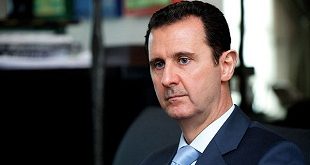I also attended an election campaign rally in which a candidate presented what seemed to be a well thought out blueprint for the development of his local ward. At the conclusion of the presentation, one person in the audience broke the silence with a bold demand for more tangible results:
“That is enough speech-making, can you now talk to us?”
“Talking to us” was easily understood to mean that it was time to give cash gifts to seal the bond.
Demands like this are not unusual during election campaigns in Kenya. They have been a regular feature of elections as long as anyone can remember. One can only imagine what this year’s campaign will be like on the back of a severe drought that has deepened inflation and led to economic hardships.
Building a democratic culture in the context of extreme hardships is a big challenge. As in many African countries undergoing democratic transitions amid conditions of high poverty, economic circumstances hinder or dissuade people from participation in the political process.
Politics of the belly
So what’s the relationship between religion and handouts? They interact and influence each other in myriad ways. Politicians distribute goods for the bellies of their clients in return for political loyalty. In this context democracy as a competitive process in which citizens freely elect their leaders is thrown out of the window.
The Kenyan Muslim leaders’ assurances of support for Kenyatta needs to understood against this background. The leaders – hint, hint – expressed gratitude to the president for appointing the highest number of Cabinet secretaries and Principal Secretaries from the (Muslim) community.
A common pattern of religious accommodation in post-colonial East African states has been documented. Reflecting trends in Kenya, various religious groups have worked with governments and parties, irrespective of their political philosophies and ideologies.
It is also important to locate religion and politics in Africa within the broader context of ethnicity which has been sustained, and even strengthened, through the political distribution of goods and wealth.
The logic here is not based on universal ideas of human rights and citizenship but rather on networks of tribal patronage and clientilism. Politicians offer their ethnic clients certain material and symbolic gestures such as invocation of tribe, money, jobs in exchange for political support. It is an insecure means of organising support, admittedly, and one that is constantly at risk of corrupt indulgence in order to fund private benefit.
Thus Bayart’s politics-of-the-belly casts a long shadow on the deployment of culture in African states. It demonstrates that religion has followed patterns established by the politics of ethnicity in which merit and common good does not matter.
The current campaign confirms these various forms of symbolic and symbiotic relationships within Kenyan politics. Religious services and rhetoric, money tokens and ethnicity are an integral part of the political system. They will likely again be the main influence in this election.
Kenya’s political elite has historically been formed in mission schools, mostly within their ethnic groups and subject to ethnic expectations. Thus it’s an elite formed by – and crippled by – ethnic pride. Religious actors have not escaped a similar elite formation. Thus Kenya’s children of God are rarely Kenyans at large.
****
Joseph Wandera, Senior Lecturer in the Department of Religious Studies, St Paul’s University
 The Independent Uganda: You get the Truth we Pay the Price
The Independent Uganda: You get the Truth we Pay the Price


